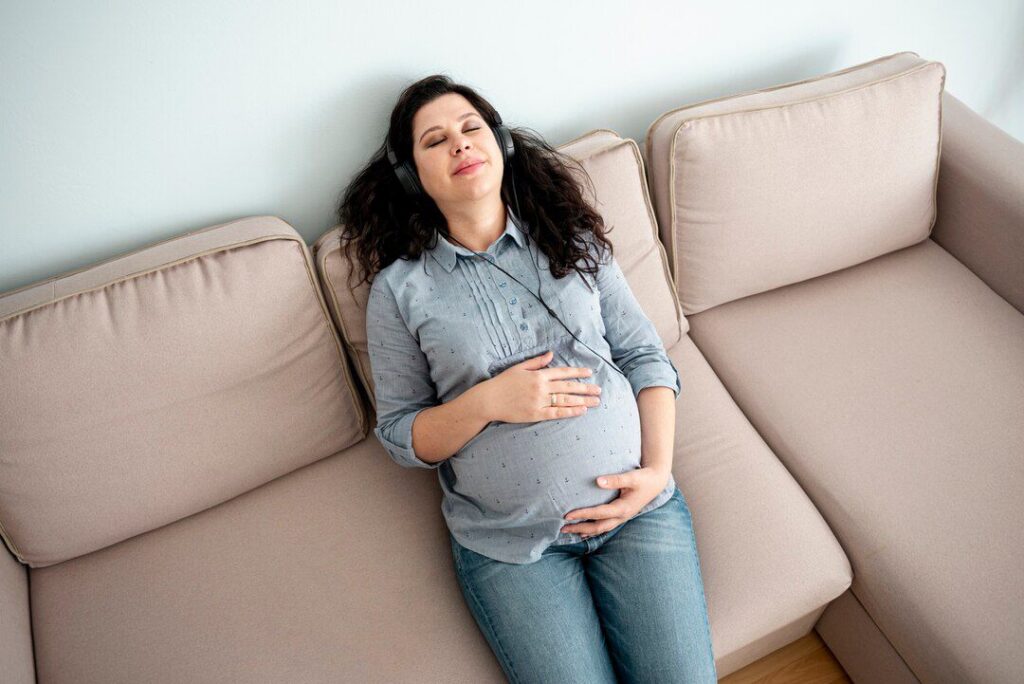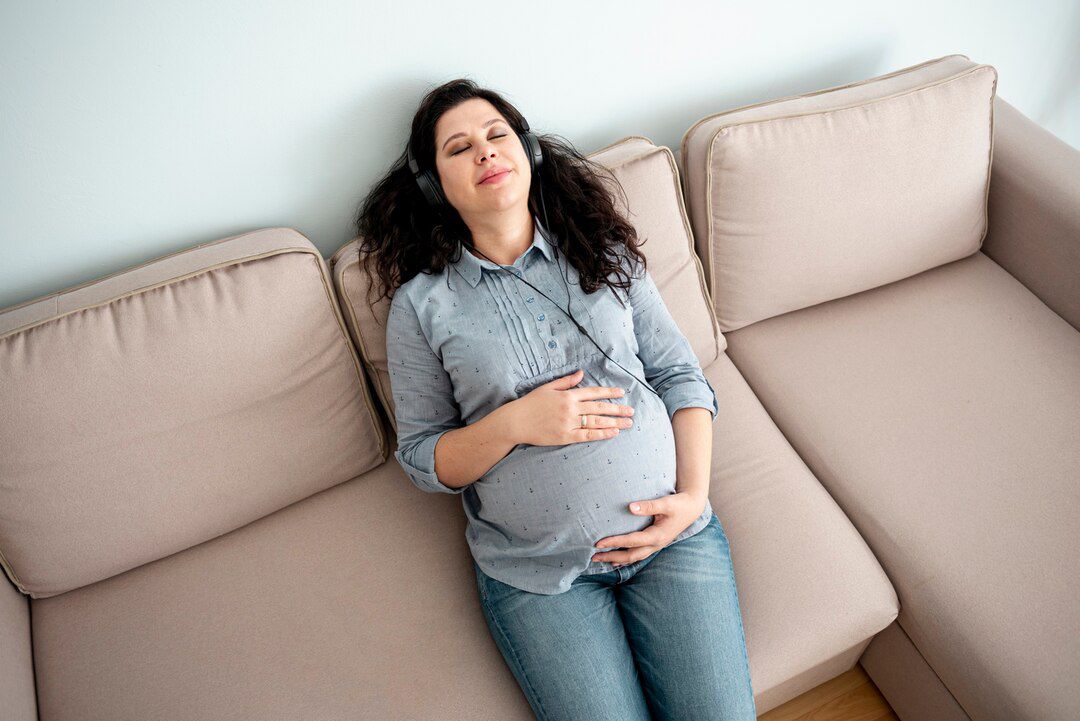Wondering when pregnancy symptoms begin? Learn about the earliest signs, how soon you can expect changes, and when to test for pregnancy to ensure accurate results.
One of the most common questions women ask after trying to conceive or after unprotected sex is, “How early can pregnancy symptoms start?” Whether you’re eagerly anticipating pregnancy or nervously wondering if it’s happening, understanding the timeline of when symptoms first appear is crucial.
The early days of pregnancy can be filled with subtle signs that many women may overlook or confuse with premenstrual symptoms. While no two pregnancies are the same, there are common early indicators that may provide clues even before a missed period. In this article, we’ll delve into the early signs of pregnancy, how soon they can start, and what changes you should watch for.
By recognizing these early changes and understanding when to take a pregnancy test, you’ll be better equipped to know what’s happening in your body.
What Happens After Conception: The Timeline of Early Pregnancy

Before diving into the specific symptoms, it’s important to understand the timeline of early pregnancy. After fertilization occurs, your body begins a complex series of changes as it prepares to support a developing fetus.
Fertilization and Implantation
Pregnancy technically begins with fertilization, which occurs when sperm meets an egg, typically in the fallopian tubes. After fertilization, the egg (now a zygote) travels to the uterus, where it will attempt to implant itself into the uterine lining. This process is called implantation, and it usually takes place 6 to 12 days after ovulation.
Once the fertilized egg implants, your body starts producing human chorionic gonadotropin (hCG), also known as the pregnancy hormone. This hormone is what pregnancy tests detect, and its increasing levels trigger many of the early symptoms of pregnancy.
Recognizing the First Changes: Earliest Pregnancy Symptoms
The symptoms of pregnancy can start as early as one week after conception, though most women start noticing changes around the time of their missed period. However, every woman is different, and symptoms may vary in timing and intensity.
Here are the most common early pregnancy symptoms and when you can expect to experience them:
1. Implantation Bleeding
One of the earliest signs of pregnancy, implantation bleeding, may occur around 6 to 12 days after conception. This is light spotting or a small amount of bleeding as the fertilized egg implants into the uterine lining. Many women mistake this bleeding for a light period, but it tends to be lighter and shorter than typical menstrual bleeding.
2. Breast Tenderness and Swelling
Hormonal changes can cause your breasts to feel tender, swollen, or sore as early as one to two weeks after conception. This can be one of the first noticeable signs of pregnancy and may feel similar to the breast tenderness many women experience before their period.
3. Fatigue
Feeling unusually tired or exhausted is another early symptom that many women notice within the first few weeks of pregnancy. This fatigue is caused by rising levels of the hormone progesterone, which plays a crucial role in maintaining a healthy pregnancy.
4. Nausea and Morning Sickness
Nausea, with or without vomiting, often referred to as morning sickness, can start as early as 2 to 4 weeks after conception. While it’s most common in the morning, nausea can occur at any time of day. This symptom is caused by hormonal changes, particularly the rising levels of hCG and estrogen.
5. Frequent Urination
As your body begins to produce more hCG, you may notice the need to urinate more frequently. This symptom can start early in pregnancy as your blood flow increases, causing your kidneys to work harder to process extra fluids.
6. Mood Swings
The hormonal shifts that occur during early pregnancy can also lead to mood swings. You may feel more emotional than usual, experiencing highs and lows similar to those you might feel before your period.
7. Cramping
Mild cramping is another common early sign of pregnancy. This is often caused by the uterus expanding and making room for the growing embryo. Many women mistake this cramping for premenstrual cramps, but it can be an early indicator of pregnancy.
How Early Can You Expect Pregnancy Symptoms?
The exact timing of when pregnancy symptoms start varies from woman to woman, but some women begin to notice changes as early as one week after conception. For others, symptoms may not become noticeable until around the time of their missed period.
When Symptoms Typically Start
While some symptoms, like implantation bleeding and cramping, can begin within a week of conception, others, such as nausea and fatigue, tend to show up closer to two to four weeks after conception.
It’s important to remember that many early pregnancy symptoms can be mistaken for premenstrual symptoms, so the best way to confirm pregnancy is to take a pregnancy test after a missed period.
When to Take a Pregnancy Test
Taking a pregnancy test too early can result in a false negative, as your body may not have produced enough hCG for the test to detect. For the most accurate results, it’s best to wait until after your missed period to take a test.
Early Testing Options
If you can’t wait until after your missed period, some pregnancy tests are designed to detect hCG earlier than others. These early detection tests can provide results a few days before your missed period, though they are not as accurate as waiting for the full two weeks after ovulation.
Internal Links for Further Reading
For more information about pregnancy symptoms and testing, check out these helpful articles:
- Pregnancy Symptoms: Learn more about the earliest signs of pregnancy and what they could mean.
- Pregnancy Testing: Discover the best time to take a pregnancy test and how to avoid false negatives.
- Postpartum Recovery: Understand the changes your body undergoes after giving birth.
External Links for Further Reading
For additional insights on early pregnancy symptoms, visit these trusted sources:
- American Pregnancy Association – A comprehensive guide to early pregnancy symptoms (American Pregnancy Association).
- Mayo Clinic – Learn about pregnancy symptoms and when to take a pregnancy test (Mayo Clinic).
- Planned Parenthood – Understand the first signs of pregnancy and what to expect (Planned Parenthood).
Conclusion
Recognizing the early signs of pregnancy can help you better understand what’s happening in your body and when to take action. While some symptoms can start as early as one week after conception, others may not appear until closer to your missed period.
The key to early pregnancy detection is paying attention to the subtle changes in your body, whether it’s implantation bleeding, breast tenderness, or nausea. While it can be tempting to take a pregnancy test right away, waiting until after your missed period will give you the most reliable results.
Remember that every woman’s experience with pregnancy is unique, and symptoms can vary widely. If you suspect you might be pregnant but receive a negative result, consider retesting a few days later or consulting with a healthcare provider.
By understanding your body and the timeline of early pregnancy symptoms, you’ll be better prepared to navigate the early stages of pregnancy with confidence.
